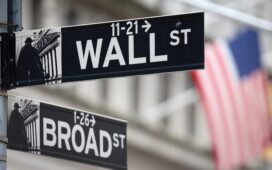Several Nigerian-listed companies have announced their 2024 full-year results and final dividends.
The Nigerian stock market shows that investors are more attracted to dividend-paying stocks than to those that do not offer dividends.
With over N185 billion in dividend payments over the last four years, UBA has demonstrated its ability to consistently reward investors and commands the highest dividend yield in the banking sector.
The Nigerian banking industry is well known for offering some of the most attractive dividend yields and consistent payments.
The manufacturing segment of the Nigerian economy is not excluded. Dangote Cement announced a dividend of N30 per share for 2024, amounting to N502.6 billion—representing 99.87 percent of its N503.25 billion post-tax profit.
Investors tend to hold on to these stocks due to the potential for long-term growth and a consistent income stream. Dividend investing is a popular strategy; purchasing dividend-paying stocks can provide investors with a steady income while enhancing their overall investment returns.
Furthermore, companies that pay dividends are typically more established and financially secure, potentially reducing investment risk compared to non-dividend-paying firms.
Historically, dividend-paying stocks in the Nigerian stock market have outperformed non-dividend-paying stocks in terms of long-term returns. This is because dividend-paying companies tend to be more successful and exhibit steadier earnings growth, which can drive capital appreciation over time.
Types of Dividends
- Cash Dividends: The most common form of dividend payment, typically distributed as a portion of company profits. These are often expressed as a fixed amount per share or as a percentage of earnings.
- Stock Dividends: Companies may issue additional shares to existing shareholders instead of paying cash. The number of new shares is usually proportional to the number already owned.
- Special Dividends: These are one-time payments that companies issue, often after asset sales or during periods of excess cash. Unlike regular dividends, they are irregular and not governed by a recurring dividend policy.
Investment Planning and Risk Considerations
Investors must decide how much of their portfolio to allocate to dividend investing. Key factors include income needs, age, investment experience, and risk tolerance. These will help determine whether to invest in individual stocks or dividend-focused ETFs.
A relevant question for investors is: If a stock’s price does not appreciate, how long will it take for dividends to recover the initial investment?
Example:
Suppose you buy 200 shares of a stock at N40 each, totaling N8,000. With a 3% yield and an annual dividend of N1 per share, you receive N200 annually.
At this rate, it would take 40 years to recover your N8,000 investment.
However, with a 5% annual increase in dividends, the payback period could drop to around 20 years, and with more aggressive growth, as little as 13 years.
This calculation assumes the stock price remains unchanged and is based solely on dividend growth—not market price appreciation.
Should You Focus on Dividend Stocks?
Dividend-paying stocks provide returns even during volatile market conditions and may act as a hedge against inflation. While dividends come with certain trade-offs, reinvesting them can accelerate wealth accumulation through the power of compounding.
However, consistent dividend payments may reduce a company’s asset base and short-term market value. When dividends are paid, those funds are no longer available for reinvestment or business expansion, which can lead to temporary pressure on the stock price.









